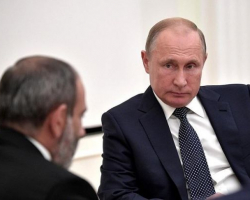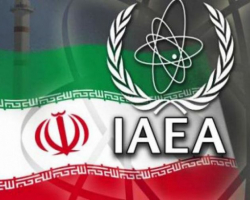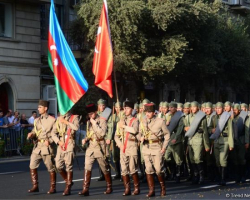
The Caspian Sea
The Caspian Sea is a landlocked body of water located in the middle of the Eurasian continent. It is also considered to be the largest inland saltwater lake in the world. The area of the Caspian Sea covers 386,000 square kilometers and borders Russia, Iran, Azerbaijan, Kazakhstan, and Turkmenistan (Bajrektarevic and Posega, 2014). The main sources of water that feed the Caspian Sea are the Volga and Ural Rivers. Throughout recorded history, the Caspian Sea has often been considered by many empires to be an extremely valuable and important body of water. This is because it not only has access to Central Asia, but also the Caucasus, Persia, and other regions that surround the sea. In the last two centuries, the Russian Empire and the Persian Empire were the only powers that ever shared the Caspian Sea. Even Marco Polo, who was a renowned Venetian traveler, came to visit the shores of the Caspian Sea in the 13th century (Ozyavas and Khan, 2012). During his expedition, he wrote the following:
“There is a fountain of oil which discharges so great a quantity as to furnish loading for many camels. The use made of it is not for the purpose of food, but as an unguent for the cure of itching in men and cattle, as well as other complaints; and it is good for burning. In neighboring country, it is used in their lamps, and people come from distant parts to procure it” (Exploring history, URL, 2016).
From this statement, we can see that even in the 13th century, Marco Polo saw that crude oil was being used by the local people in the fueling of their lamps, without realizing that in the distant future this fuel would become the main element in the energy security of all the countries of the world. Thus, after 6 centuries the importance of the Caspian Sea became more visible when the world’s first oil well was drilled near the city of Baku, located on the western shores of the Caspian Sea. Beginning in the late 19th century, the Nobel brothers entered the Caspian basin and started drilling for oil. It wasn’t long before other oil companies followed them and together they industrialized the oil sector and laid the infrastructural foundations for energy extraction on a massive scale. This situation continued until the 1920s when the Soviet Union gained control of most of the Caspian region together with Iran (Ziyadzade, 2015).
Legal Status of the Caspian Sea
The legal status of the Caspian Sea has become one of the most controversial topics since the fall of the Soviet Union. During the Soviet Union period, control of the Caspian Sea was distributed between Moscow and Tehran (Dar, 2013). However, when the South Caucasus and Central Asian countries regained their independence after the collapse of the Soviet Union, it resulted in the long lasting and undefined nature of the legal status of the Caspian. The only international document that exists which concerns the status of the Caspian is the Soviet-Iran Trade and Navigation Agreement that was signed in 1940 (Bajrektarevic and Posega, 2014). However, the five current littoral states of the Caspian Sea, namely Russia, Azerbaijan, Kazakhstan, Turkmenistan, and Iran, have found themselves in the middle of discussions and negotiations for a definitive agreement on the matter. The unresolved status of the Caspian Sea and the varied positions held by each littoral state regarding its demarcation process has not only obstructed the settlement of the legal status but it has also worsened the bilateral relations between some of these countries. Disagreements on the legal status of the Caspian Sea are often based on the notion of whether the body of water is a lake or a sea and applying the law based on one of these two alternatives has become the main topic of the negotiation process (Cason, 2015). Internationally accepted law of the sea and customary international law are the two decrees that are being taken into consideration in defining the status of the Caspian Sea. They respectively propose to either settle the demarcation with the coastline and equidistance measurements, as per the law of the sea, or with the 15 nautical miles from the shores of each country, as per the customary international law, if it is considered to be a lake (Dilbazi, 2010). All of the 5 littoral countries of the Caspian Sea have met almost every year in the hopes of achieving some form progress in resolving the unsettled situation regarding the Caspian Sea. The last Caspian Summit, which took place in Russian Federation in 2014, is one of the examples of this process. However, it is very important to mention that all the states in the Caspian Sea hold specific agendas and therefore different positions and these positions are highly connected to both economic and political interests (Bajrektarevic and Posega, 2014). In a 2016 Working Group that took place in Turkmenistan, the littoral countries were still unable to reach any positive statements in terms of resolving the final status of the Caspian Sea (Bajrektarevic and Posega, 2016). Since these concerns are considered to be national interests, it becomes very visible that a circumstance in which all five of the countries are able to reach an agreement in defining the final legal status of the Caspian will be very difficult to achieve. Currently, Azerbaijan, Russia, and Kazakhstan share the same positions on the demarcation of the Caspian Sea under the law of the sea, and in 2002 the 3 countries had already defined their national sectors (Grewlich, 2011). Azerbaijan and Kazakhstan share Russia’s view of “common waters, divided approach” because the majority of natural gas and crude oil reserve fields are generally located in the middle of the sea (Abilov and Isayev, 2015). However, Turkmenistan and Iran still haven’t agreed on the status of the Caspian Sea. The main reason for this is that both countries have had massive disagreements with the Republic of Azerbaijan. Turkmenistan, Iran, and Azerbaijan have had disputes over their maritime borders and as a result, the planned implementations of major regional projects are being postponed. These proposed projects are primarily composed of energy pipelines that were to connect the east and west side of the Caspian Sea with energy infrastructure.
Geopolitical interests in the Caspian basin
The Caspian Sea, which divides the European and Asian continents, is located in one of the most geopolitically critical regions in the world. Most of the global and regional powers’ political, economic, and security interests coalesce in this region and this causes conflicts of many interests, especially in the implementation of mutually beneficial energy projects (Gidadhubli, 2015). When taking into consideration the long-lasting discussions and negotiations on the legal status of the Caspian sea, it can be seen that there are a significant number of negative impacts that occur due to the discovery of energy fields and the subsequent implementation of energy projects. This is mostly due to the blocking of production and the high likelihood of delays in the construction of natural gas and crude oil pipelines in the region. This situation is most visible when investigating the implementation of the Trans-Caspian natural gas pipeline project, which is intended to connect the South Caucasus with Central Asian countries, such as Azerbaijan and Turkmenistan (Grison, 2013). The implementation of the project would most importantly link Turkmenistan and Kazakhstan’s energy resources to the European energy market. However, the European Union countries’ dependency on the Russian energy exports as well as the important potential benefits of developing the Caspian basin and its energy reserves, puts the countries of Azerbaijan, Turkmenistan, and Kazakhstan in a most difficult situation (Emadi and Nezhad, 2011). Therefore, the legal status of the Caspian Sea would definitely provide significantly more support to these countries in the construction of energy pipeline projects intended for the transportation of their fossil fuels to the European energy markets. Proposed projects, such as the Trans-Caspian natural gas pipeline, are driven by the idea that the countries of the European Union must ensure that they decrease Russian domination over the European energy market and build a diversified network of alternatives for the ultimate security of their energy policy (Neag, Mihai, and Elisabeta-Emilia Halmaghi, 2016). However, this proposed pipeline project puts involved countries at risk of annoying the Russian Federation. In particular, Turkmenistan would receive increased pressure from Moscow and Iran due to ongoing disagreements and argue over the still unresolved status of the Caspian Sea (Shaffer, 2005). As a result, Turkmenistan is very cautiously walking a fine line as it attempts to avoid creating further confrontations between itself and Moscow.
On the other hand, Azerbaijan has been actively participating in the energy fields of the national sector of the Caspian Sea. The country has played a huge role in implementation, development, and production in the Southern Gas Corridor (Marketos, 2009). As a consequence of this, Azerbaijan has served as a key player in the creation of an access corridor for EU countries to reach the Caspian hydrocarbon resources. Also, Azerbaijan is working very tightly with the Russian Federation and Iran and is continuing to cooperate within the Caspian Sea energy field (Neag, Mihai, and Elisabeta-Emilia Halmaghi, 2016). In 2016, Baku hosted the first Trilateral Summit, which created a new platform to foster healthy relations between the Russian Federation, the Islamic Republic of Iran, and Azerbaijan so that they can discuss further cooperation, especially on future projects within the Caspian Sea. During the Summit, the President of Russia, Vladimir Putin stated the following:
“Russia, Iran and Azerbaijan can discuss the implementation of new energy and transport projects in the Caspian Sea. We really have something to talk about in this format. There may be new projects in the Caspian Sea, and in a broader context, I mean transportation, energy, and the diversification of trade and economic relations” (Sputnik, URL, 2016).
This statement clearly demonstrates that Russia is willing and able to work together with the rest of the Caspian Sea states so as to create a network of energy cooperation that would benefit the bordering countries. Vladimir Putin evidently delivered a message suggesting that in the near future there are serious plans to expand Russia’s priorities within the context of the renewed energy cooperation between Iran and Azerbaijan. Putin further stated, “Implementing oil and gas exploration and development projects, primarily in the Caspian region, are seen as priorities. We are ready to discuss mutually beneficial plans for the shared use of pipeline infrastructure to transport raw materials” (Sputnik, URL, 2016). There is a likely chance that Turkmenistan also will be invited to participate in the development of this cooperation. It is believed to be beneficial to have the modern and securitized infrastructure, especially with neighboring countries. However, this cooperation of Azerbaijan with the Russian Federation and the Islamic Republic of Iran does not mean that the country will decrease its energy relations with EU countries (Ziyadzade, 2015). As a matter of fact, Azerbaijan is currently involved in the construction of the TANAP gas pipeline project and is engaged in the sale of its natural gas and crude oil resources to the EU energy market via the BTC and BTE pipelines. Even with the undefined legal status of the Caspian Sea, Azerbaijan is nonetheless exploring its new potential energy fields whilst cooperating with Russia and Iran in the Caspian Sea and building its diversified energy infrastructure so as to create an energy corridor for other energy markets, particularly those in Europe. Within this policy of Azerbaijan, Turkmenistan is also considering the role and experience of Azerbaijan. Turkmenistan is showing significant interest in the diversification of the routes by which it exports its natural gas reserves, for example via the proposed Trans-Caspian pipeline that crosses the Caspian Sea.
Bibliography:
1) Abilov, Shamkhal, and Ismayil Isayev. (2015) "Azerbaijan-Russian Relations: Azerbaijan’s pursuit of successful balanced foreign policy/Azerbaycan-Rusya Iliskileri: Azerbaycanin basarili denge politikasi arayisi" Orta Asya ve Kafkasya Arastirmalari, vol. 9, no. 19, pp. 113-143
2) Bajrektarevic, Anis H., and Petra Posega. (2016) "The Caspian Basin: Geopolitical Dilemmas And Geoeconomic Opportunities." Geopolitics, History and International Relations, vol. 8, no. 1, pp. 237-264
3) Bajrektarevic, Anis H., and Petra Posega. (2014) "The Caspian Basin: Territorial and Status- Related Disputes, Energy Transit Corridors, and their Implications for EU Energy Security." Seton Hall Journal of Diplomacy and International Relations, vol. 16, no. 1, pp. 85-107
4) Cason Bryce. A. (2015) “The Trans-Caspian pipeline: implications for the five littoral states”. J World Energy Law Bus, pp. 474-484
5) Dar, F. (2013) Caspian Sea: A Case Study of Economic Conflict. Current Politics and Economics of Russia, Eastern and Central Europe, vol. 28, no. 2. pp. 115-130
6) Dilbazi, Eltay. (2010) "Energy Security and Alternative Sources in the Caspian Sea Region." International Issues & Slovak Foreign Policy Affairs, vol. 19, no. 1, pp. 79-94
7) Emadi, S.E; Nezhad, H. (2011) Energy Market for Caspian Sea Oil and Its Supply. International Black Sea University Scientific Journal (5.2), 2011. pp. 21-34
8) Gidadhubli, R. G. (2015) "Caspian Genesis of Energy Politics." The Journal of Central Asian Studies, vol. 22, no. 1, pp. 73-I
9) Grewlich, Klaus W. (2011) "International Regulatory Governance of the Caspian Pipeline Policy Game." Journal of Energy & Natural Resources Law, vol. 29, no. 1, pp. 87-116
10) Grison, Nathan R. (2013) "NATO's Energy Security Policy Put to the Caspian Test." Connections: The Quarterly Journal, vol. 12, no. 2, pp. 83-94
11) Marketos, T. (2009) Eastern Caspian Sea Energy Geopolitics: A litmus test for the U.S. - Russia - China Struggle for the Geostrategic Control of Eurasia. Caucasian Review of International Affairs, 3(1), pp 2-19.
12) Neag, Mihai, and Elisabeta-Emilia Halmaghi. (2016) Energy Security. Black Sea - Caspian Sea Corridor, Romanian National Defense University, Regional Department of Defense Resources Management Studies, Brasov, 2016
13) Ozyavas, Aziz, and Shahab D. Khan. (2012) "The Driving Forces Behind the Caspian Sea Mean Water Level Oscillations." Environmental Earth Sciences, vol. 65, no. 6, pp. 1821-1830
14) Shaffer, B. (2005) From Pipedream to Pipeline: A Caspian Success Story. Current History, 104(684) pp. 343-346.
15) Ziyadzade, Ziyad. (2015) "Drilling for Black Gold: The Demarcation of Hydrocarbon Resources in the Caspian Sea." Chicago Journal of International Law, vol. 16, no. 1, pp. 312-339
Links below last accesses: 7th of May 2017
16) Exploring history. (2016) “How did the Baku Oil Industry Grew Under Tsarist Russia?” URL: http://exploringhist.blogspot.ch/2016/01/how-did-baku-oil-industry-grew-under.html
17) Sputnik. (2016) “Russia Ready to Discuss Joint Caspian Pipeline Use With Iran, Azerbaijan – Putin” Sputnik, URL: https://sputniknews.com/business/201608081044065312-putin-pipeline-talks/
Abstract
Due to the undefined legal status of the Caspian Sea and due to geopolitical rivalry in the Caspian basin, there has been a postponement of the implementation of the energy infrastructures, which would connect South Caucasus and Central Asia across the sea. Furthermore, energy resources from additional Central Asian countries, such as Turkmenistan, could also enhance the diversification of European countries’ energy imports. This situation is most visible when investigating the implementation of the Trans-Caspian natural gas pipeline project, which is intended to connect the South Caucasus with Central Asian countries, such as Azerbaijan and Turkmenistan. The implementation of the project would most importantly link Turkmenistan and Kazakhstan’s energy resources to the European energy market.
Keywords: Republic of Azerbaijan, Caspian Sea, Central Asia, Geopolitics
Dr. Yusif Huseynov
The Geneva School of Diplomacy
and International Relations
Geneva, Switzerland
"GEOSTRATEGİYA" jurnalı №02 (44) MART-APREL 2018
Strategiya.az


Paşinyan Kremldə: iki məsələdə xəyal qırıqlığı və ziddiyyətlər


Gələcək zəfərlərdən xəbər verən sarsılmaz Azərbaycan-Türkiyə birliyi

HEYDƏR ƏLİYEV - YENİ MİLLİ İNTİBAHIN VƏ MÜSTƏQİL DÖVLƏTÇİLİYİN ƏSASINI QOYMUŞ TARİXİ LİDER

Müasir dövrün qlobal problemi iş şəraitində mobbinq ve mübarizə yolları

Azərbaycan Respublikasında Dövlət Qulluğunun Təkmilləşdirilməsi İstiqamətləri

HEYDƏR ƏLİYEV - MÜASİR AZƏRBAYCAN TARİXİNİ YARADAN LİDER
Xarici valyutaların manata qarşı bugünkü məzənnəsi
Ceyhun Bayramov ölkəmizin Avropanın enerji təhlükəsizliyində mühüm rol oynadığını bildirib
İmtahanın nəticələri ilə əlaqədar müraciətlərə baxılması üçün Apellyasiya Şurasına ərizə qəbuluna başlanılıb
Xarici işlər naziri Ceyhun Bayramov NATO-nun Baş katibi Yens Stoltenberq ilə görüşüb
Avropa İttifaqı münaqişədən sonrakı dövrdə mühüm rol oynayır - Ceyhun Bayramov
"Qarabağ" İsveçrə çempionuna qalib gəldi
Tehranda Rusiya və Türkiyə prezidentlərinin görüşü olub
Ceyhun Bayramov Gürcüstanın Baş naziri ilə bölgədə sülh prosesini müzakirə edib
Mikayıl Cabbarov: Sənaye zonalarında istehsal 53 faiz, ixrac isə 2 dəfə artıb
Ağalı kəndinə köçürülən ailələrin tibbi müayinələrinə başlanılıb
Prezident İlham Əliyev: Bizim Xəzər dənizi kimi çox nəhəng bir enerji mənbəyimiz var
Qubada içərisində 125 min manat olan seyf oğurlanıb
İrəvan Dövlət Azərbaycan Dram Teatrının 140 illiyi qeyd edilləcək - SƏRƏNCAM
Azərbaycan tarixinin şanlı səhifələrindən biri - 14 iyul 1969-cu il
Şuşada Vaqif Poeziya Günləri başlayıb
Təhsil Nazirliyi: 204 məktəbdə elektron jurnal və gündəlik sistemi tətbiq edilib
Təhsil Nazirliyi məlumat yaydı
FHN: Zəngilan rayonunda ağaclıq ərazidə baş verən yanğının tam söndürülməsi istiqamətində tədbirlər görülür
Azərbaycan neftinin qiyməti 114 dolları ötüb
Azərbaycan Ordusunun əsgəri həlak olub
Baş Prokurorluq rəis müavininin intiharı ilə bağlı məlumat yaydı
Respublika üzrə pensiyaların iyulun 15-də tam ödənilərək yekunlaşdırılması nəzərdə tutulub
Qızıl təpə abidəsində arxeoloji tədqiqatlar davam edir
Azərbaycan neftinin bir bareli 113,91 dollara satılır
Bakı-Tbilisi-Ceyhan neft boru kəmərinin tam istismara verilməsindən 16 il ötür
Partlayış zamanı “Baktelecom”un rabitə infrastrukturuna ziyan dəyməyib
Dünyada "Premium Euro-95" benzinin bahalaşması gözlənilir - Azərbaycana necə təsir edəcək?
Azərbaycan nefti ucuzlaşıb
Böyük Britaniyanın yeni baş nazirinin adı sentyabrın əvvəlində açıqlanacaq
Tovuz döyüşlərindən iki il ötür
Bakının mərkəzində partlayış baş verib
Cüdoçularımız Xorvatiyada Qran-Pri turnirində iştirak edəcəklər
Ərdoğan yaxın zamanda Venesuelaya səfər edəcək - Maduro
Türkiyə və Ukrayna prezidentləri arasında telefon danışığı olub
Xaçmazdakı meşə yanğınının söndürülməsinə iki helikopter və amfibiya tipli təyyarə cəlb olunub
Ərdoğan və Paşinyan arasında telefon danışığı olub
Saatlı stansiyası yaxınlığında qəzaya uğrayan qatar Gürcüstana məxsusdur - ADY
FHN Xaçmazdakı meşə yanğınları ilə bağlı məlumat yayıb
Vahid əlaqələndirmə mərkəzlərində 41 min şəxsə xidmətlər göstərilib
Kino Agentliyi Mədəniyyət Nazirliyinin tabeliyində olan qurumların siyahısına əlavə edilib
Gələn ilin sonunda Şuşa ilk sakinlərini qəbul edəcək - Aydın Kərimov
Azərbaycan Ordusunun hərbçisi həlak olub
DİN: Ötən gün ölkə ərazisində qeydə alınan cinayətlərdən 52-nin açılması təmin olunub
Xocavənd rayonu ərazisində yeni hərbi hissənin açılışı olub
Birinci vitse-prezident Mehriban Əliyeva Qurban bayramı münasibətilə xalqımızı təbrik edib
Abeyə atəş açan şəxs əməlinin səbəbini açıqlayıb
Zakir Həsənov Qurban bayramı münasibətilə Azərbaycan Ordusunun şəxsi heyətini təbrik edib
XİN Azərbaycanın diplomatik xidmət orqanlarının əməkdaşlarını peşə bayramı münasibətilə təbrik edib
Bu gün Azərbaycanda Qurban bayramı qeyd edilir
Bərdədə avtomobil yolunun tikintisi ilə bağlı 3,1 milyon manat ayrıldı - SƏRƏNCAM